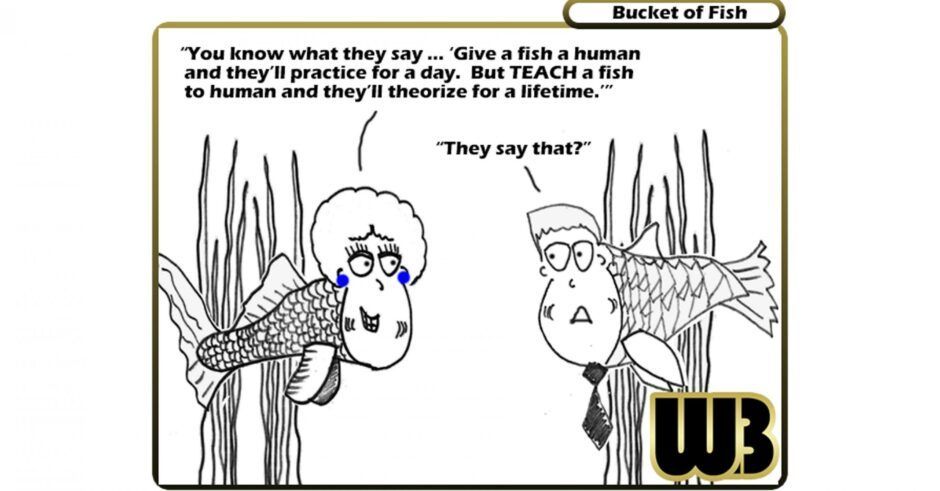“It works in practice, but will it hold up in theory.” – Anonymous
There is an age-old debate between pragmatists and theorists. The pragmatists’ cries haunt me in dreams, “Don’t give me theory, just tell me what I should do!” “Can you make it a checklist?” No doubt my cries also haunt them, “You have to understand it first!”
I heard someone recently say, “I am a practitioner so they don’t like the theory.” I am having trouble teasing these two things apart. These are polarities, not opposites. Some people naturally gravitate towards more practice, less theory, while others gravitate to more theory, but still, need to stay connected to what’s really happening in practice. If you are a true practitioner, you are affected by new theories in your practice. You might even develop some theories based on your experience.
Experience teaches nothing without theory- W. Edwards Deming
Practice without Theory is Stagnant. If you learn how to do something and continue to practice it you will never excel past what you learned. If you inject some theory, you can make new discoveries, improve your practice and improve.
I had a discussion with my genius hairstylist. I asked him why the haircuts at SuperCuts are so bad when they have so many hours, at least the requisite 10,000 hours needed for mastery. His answer was that they have 10,000 hours of bad haircuts. They don’t seek ways to incorporate new ideas into their practice.
Theory without Practice is Useless. When we have theory without practice we run into a different issue. The theory cannot be proven, and also we don’t have a source for new theories. Theory and practice are circular feedback loops that feed each other. If you have a theory that no one puts into practice, it’s of no use to anyone.
A friend once told me how much she “hates people like you [me] who are all theory and strategy. My answer was “I love people like you, because it’s practitioners that complete my world.”
Modern companies want to know how. My experience has been that companies only want to know the ‘how’, not the ‘why’. Most consultants would be happy because you need to keep going back to teach more ‘hows’. Not me, I like to see my seedlings grow.
I’ve embarked on some internal conflict as I don’t want to keep giving companies a single fish, yet they don’t have the time or inclination to learn how to fish. Note that individuals often want to learn to fish, but their companies don’t support it, they just want to see a bucket of fish.
Brain Twist. If you tend to be a practitioner, go find a new theory in your space and try it out. If you’re a theorist, get out into the field and immerse yourself in usage. See what you can learn that informs your theories.




